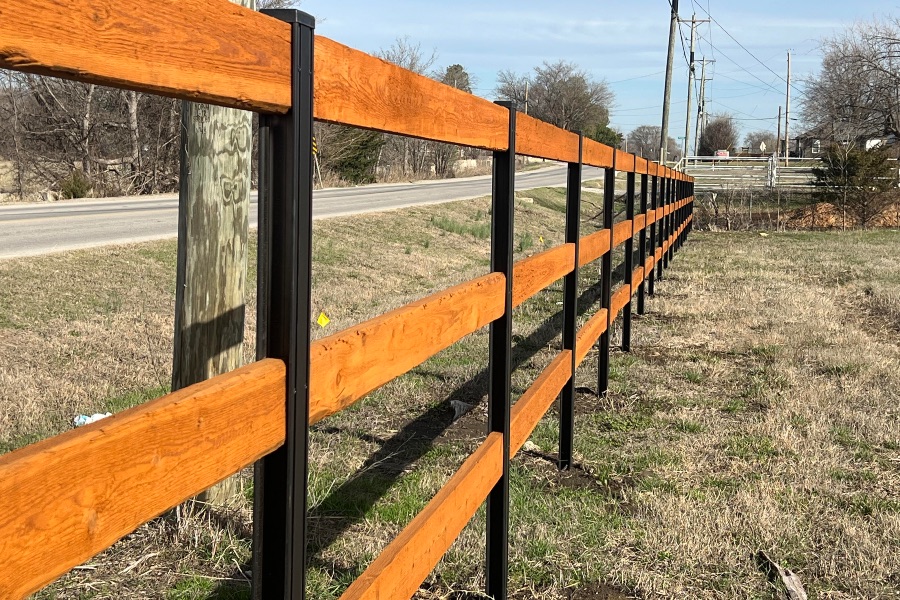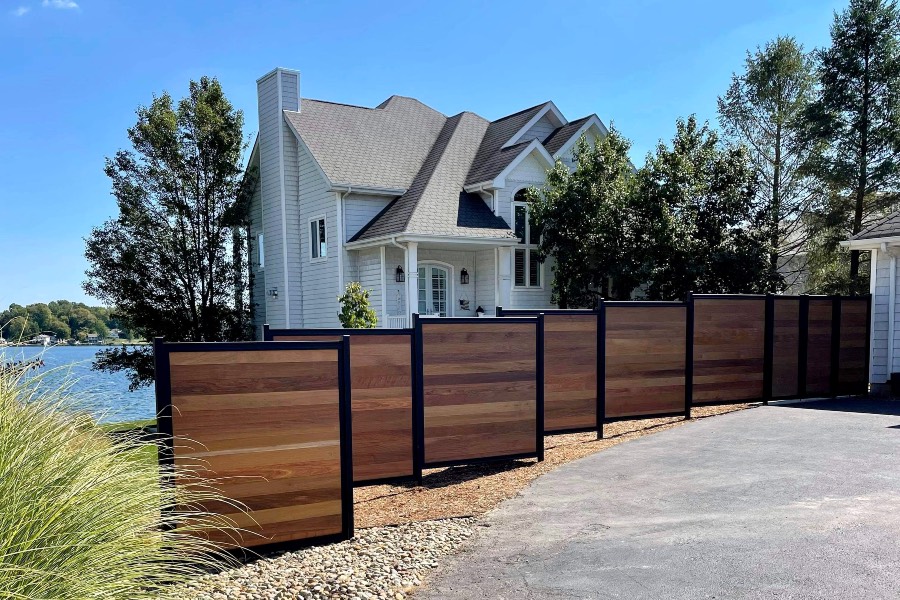All Categories
Featured

Amongst the most prominent alternatives, timber, vinyl, and aluminum each offer one-of-a-kind benefits and downsides. Here's a breakdown of the pros and cons of these 3 usual fencing products.
Timber Secure Fencing. Timber fencing has been a classic selection for home owners because of its all-natural appeal and convenience.
Pros:. Aesthetic Appeal: Wood provides a cozy and classic appearance that matches a selection of building designs. Adjustable: It can be painted, stained, or reduce right into unique designs to fit personal preferences. Cost-efficient: At first, timber fence can be a budget friendly choice compared to various other products. Eco-Friendly: Wood is a renewable energy and can be sustainably sourced. Disadvantages:. High Maintenance: Timber needs normal securing, discoloration, or painting to avoid rot, insect damage, and weathering. Resilience Issues: Without appropriate treatment, timber can warp, crack, or decay gradually, specifically in areas with high moisture. Shorter Life expectancy: A timber fencing usually lasts 10-20 years, depending upon the type of timber and degree of upkeep. Timber is ideal for those that value a traditional appearance and are ready to dedicate to its upkeep.
Vinyl Fence. Vinyl is a modern, low-maintenance fencing option that has actually expanded in popularity in recent years.

Pros:. Low Maintenance: Vinyl does not require painting, discoloration, or securing and can be easily cleaned up with soap and water. Climate Resistant: It endures severe weather problems without rotting, rusting, or bending. Durable: Plastic fences can last 20-30 years with marginal upkeep. Range of Styles: Available in lots of shades, layouts, and appearances, some plastic alternatives resemble the look of timber. Disadvantages:. Higher Upfront Cost: Vinyl fencing can be more expensive at first compared to timber. Brittleness in Winter: In severe cold, plastic might crack or come to be breakable. Limited Services: Individual panels can be difficult to change, requiring cautious matching to the existing fence. Vinyl is finest matched for home owners seeking a long lasting, low-maintenance option with modern aesthetics.
Light Weight Aluminum Secure Fencing. Light weight aluminum secure fencing is a lightweight and long lasting choice, typically selected for its modern appearance and adaptability.
Pros:. Rust-Resistant: Aluminum doesn't rust, making it an outstanding option for damp or humid climates. Reduced Maintenance: Calls for minimal maintenance and is simple to tidy. Resilient: While lightweight, light weight aluminum is solid sufficient to stand up to several ecological problems. Long Life expectancy: Can last a number of years without substantial wear or deterioration. Variety of Styles: Supplies a classy and smooth look, frequently used for decorative or ornamental purposes. Disadvantages:. Higher Price: The initial investment for aluminum fencing is greater than wood or vinyl. Less Personal privacy: Aluminum fencings are commonly created with open pickets, making them much less efficient for privacy. At risk to Damages: Although durable, aluminum can be dented by strong effects. Aluminum is suitable for those seeking a stylish, long-lasting alternative that calls for marginal care.
Making the Right Choice. Each secure fencing product-- timber, vinyl, and light weight aluminum-- supplies unique advantages and drawbacks. Your decision should rely on your specific priorities, such as budget, maintenance choices, environment, and visual objectives:
Pick timber if you love a conventional appearance and do not mind normal maintenance. Go with vinyl if you want a low-maintenance, weather-resistant fence with contemporary appeal. Select light weight aluminum if you prioritize durability, rust resistance, and a streamlined layout. By considering these disadvantages and pros, you can select a fence product that improves your property while fulfilling your useful requirements.
Latest Posts
Explore Affordable Auto Repairs with Montclare’s Monthly Service Specials
Published May 24, 25
1 min read
Uncover Brake Repair & More: Comprehensive Auto Care Solutions from Montclare Auto Repair
Published May 23, 25
1 min read
Shield and Improve Your Home with Weathercraft's Exterior siding Solutions
Published May 22, 25
1 min read
More
Latest Posts
Explore Affordable Auto Repairs with Montclare’s Monthly Service Specials
Published May 24, 25
1 min read
Uncover Brake Repair & More: Comprehensive Auto Care Solutions from Montclare Auto Repair
Published May 23, 25
1 min read
Shield and Improve Your Home with Weathercraft's Exterior siding Solutions
Published May 22, 25
1 min read